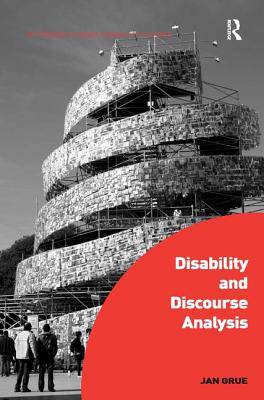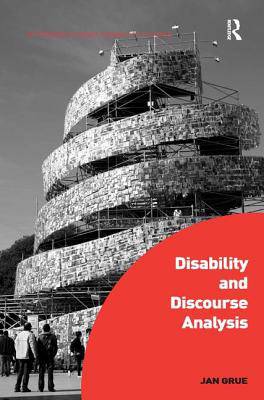
- Afhalen na 1 uur in een winkel met voorraad
- Gratis thuislevering in België vanaf € 30
- Ruim aanbod met 7 miljoen producten
- Afhalen na 1 uur in een winkel met voorraad
- Gratis thuislevering in België vanaf € 30
- Ruim aanbod met 7 miljoen producten
Zoeken
Omschrijving
Disability studies has engaged with discourse analysis in key works both from the UK and the USA. While the perspectives and analyses of discourse analysis have proved well suited for exploring disability, however, its methods have not been sufficiently developed in a disability studies context. Conversely, discourse analysts have traditionally been concerned with social issues and fields in which asymmetric power relations, marginalization, and discrimination play a central role, e.g. gender, race, ethnicity, and sexual orientation, all of which share many analytical features with disability. But although efforts have been made to integrate disability into the discourse analysis and conversation analysis canon, the link between the two fields needs to be strengthened. This ground-breaking volume contributes to this link by thoroughly applying the analytical vocabulary of discourse analysis to issues that are central to the field of disability studies. It strengthens disability studies by supplying case studies of representations and constructions of disability and disabled people in discourse, theorizes the role played by language in the social construction of disability, and makes disability a more salient topic for discourse analysts.
Specificaties
Betrokkenen
- Auteur(s):
- Uitgeverij:
Inhoud
- Aantal bladzijden:
- 152
- Taal:
- Engels
- Reeks:
Eigenschappen
- Productcode (EAN):
- 9781472432926
- Verschijningsdatum:
- 28/12/2014
- Uitvoering:
- Hardcover
- Formaat:
- Genaaid
- Afmetingen:
- 156 mm x 233 mm
- Gewicht:
- 359 g

Alleen bij Standaard Boekhandel
+ 364 punten op je klantenkaart van Standaard Boekhandel
Beoordelingen
We publiceren alleen reviews die voldoen aan de voorwaarden voor reviews. Bekijk onze voorwaarden voor reviews.











